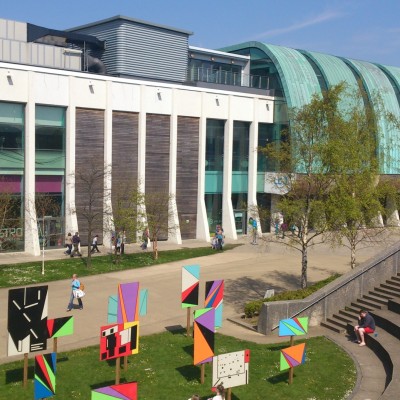
Reaction of the European Alliance for Culture and the Arts to the European Commission’s proposal for the EU future budget
The Alliance argues for a long-term, considerable and balanced funding of the cultural and arts sectors at the EU level, allowing for sustainable development and ensuring their crucial role in the revitalisation of Europe.
European Alliance for Culture and the Arts welcomes the European Commission’s proposal for the EU’s Multiannual Financial Framework for 2021-2027, which maintains Creative Europe as a self-standing programme, with an increased budget € 1.4 billion to €1.8 billion.
However, in the current state of the EU, looking at the political, economic and societal challenges, we strongly believe that the cultural sector needs a more significant boost, and therefore call on the European Parliament and the Council for a double increase of Creative Europe’s budget. All the more so, there are additional measures and schemes foreseen to be added to Creative Europe (mobility fund for artists, sectorial funding schemes).
The Maastricht Treaty (Article 151, clause 4) stipulates that the European Commission must “take cultural aspects into account in its action under other provisions of this Treaty”. The Bulgarian Presidency’s discussion paper The way ahead: long-term vision for the contribution of culture to the EU after 2020, 27 April 2018, stipulates that “It is of vital importance to enhance the process of mainstreaming culture in the other sectoral policies, which would result in mutual benefits for both culture and the relevant sector”. The New European Agenda for Culture “responds to the European Leaders’ invitation to do more, through culture and education, to build cohesive societies and offer a vision of an attractive European Union”.
Considering these commitments, as well as taking into account the recent years’ initiatives underpinning the Commission and Member States’ eagerness to strengthen and support culture and the arts*, we call on the European institutions and the member states to ensure that culture, arts and heritage are horizontally included in and financially supported within each of the below programmes as presented by the Commission in the MFF:
°Horizon Europe. Creativity is a powerful contributor to economic, societal and technological innovation. Research and innovation are vital to support the future developments of the cultural and creative sector, to enhance culture’s role in building truly open, inclusive, creative and prosperous societies, and to deal with the most urgent societal challenges.
°Digital Europe Programme. Digitisation of culture is essential for giving access to culture to vulnerable groups in society, disseminating Europe’s cultural content globally, preservation of artistic work and heritage, and unlocking the sector’s potential for innovation. Advancing the cultural and artistic sectors’ adaptation to the digital transformation contributes to the sustainability of the EU’s socio-economic ecosystem as a whole.
°Single Market Programme. The cultural sector is an excellent vector for economy and sustainable growth. Small and medium-sized enterprises in the cultural and creative sectors need support in developing and adopting sustainable and innovative operating models, in order to perform better, enhance their own competitiveness and contribute to the EU’s economic and social development even greater.
°European Regional Development and Cohesion Fund. Culture and the arts are the basis and a powerful tool for urban regeneration, development and social cohesion. Investments in culture have a transversal effect and help to stimulate the economic and social development, as well as the innovative spirit at regional and local level; the presence of cultural activities is a major factor of the attractiveness of regions and cities.
°European Social Fund+. Cultural engagement empowers the groups at risk of exclusion, such as economically disadvantaged, ageing, disabled people, and minority ethnic groups to become an active part of society. Access to and participation in culture foster essential soft skills and result in better performance and participation in the labor market.
°Erasmus+. Enhancing the sense of belonging to the EU – one of the essential ultimate goals of the programme – is crucial for art and culture professionals, as they often have a unique power to construct interpersonal bonds beyond national frontiers and nourish the sense of a shared identity within the diverse community of Europeans. Moreover, international exchange in the field of education and training is indispensable for developing a strong, innovative and resilient cultural sector.
°Rights, Justice and Values Fund. Culture and the arts, as vectors of critical thinking and awareness-raising, are crucial for a healthy democracy, fostering social empowerment, civic engagement and participation, and acceptance of pluralism and diversity – values urgently needed by the EU of today and tomorrow.
°European Agricultural Fund for Rural Development. Culture contributes greatly to regeneration of rural areas and helps to sustain rural communities, nurturing their self-identification. Besides, culture and the arts can be a robust foundation for harmonious co-operation within rural communities, enabling citizens to address in a collaborative way their concerns and aspirations.
°LIFE – Programme for the Environment and Climate Action. Artistic and cultural work can have a tremendous impact on creating and fostering environmental awareness. Culture, arts and creative work have the potential to inspire a critical view, revealing the imperfections of current approaches to sustainability, and to transform individual perceptions, values, behavioral patterns and attitudes towards environment.
°Asylum and Migration Fund. Art and culture have the potential to break down the simplistic “us against them” discourse and smoothen the tensions, by helping people to accept, embrace and navigate the pluralism of ideas, mentalities, and backgrounds. Culture and the arts teach individuals about complexity and contribute to the constructive experience of “otherness”.
°Neighborhood, Development and International Cooperation Instrument. Cultural diplomacy strengthens the bi-lateral relations between European and third countries and builds bridges between societies – as it is a tool to exchange ideas and thereby fostering better mutual understanding. Cultural exchange creates an open environment within which political and social issues as well as liberal values can more easily be addressed.
°InvestEU Fund. The cultural and creative sectors are drivers of innovation, economic growth and job creation, and bring benefits for education, social inclusion and social innovation. In order to leverage private investment, cultural and creative small and medium-sized enterprises need access to equity and debt financing.
We also encourage the EU to strengthen the role of cities and regions in those funding and governance schemes aiming to promote innovation ecosystems, where culture, arts and heritage sectors and regional authorities can closely work together to leverage the innovation potential of territories and lead cultural and social transformations within our societies.
* Key initiatives underpinning the Commission and Member States’ commitment to strengthen and support culture and the arts:
- The New European Agenda for Culture, May 2018
- The Gothenburg Social Summit and Leaders’ agenda on Education and Culture, 17 November 2017
- The launch of the European Year of Cultural Heritage 2018 in Milan, December 2017
- The Communication of the European Commission on “Strengthening European Identity through education and culture”, 14 November 2017
- State of the Union speech on 13 September 2017 by the President of the European Commission, Jean-Claude Juncker
- The European Consensus on Development, May 2017
- The Rome Declaration, March 2017
- Joint Communication to the European Parliament and the Council “Towards an EU strategy for international cultural relations”, June 2016
- Lisbon Treaty (art. 167 TFEU)
Download the statement here.

